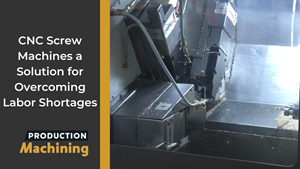Moving Up to CNC for Smaller Lot Sizes
This small shop has a large presence. CNC is playing a significant role in the company’s ability to deliver parts for the big stage.
When Jerald Welch opened his shop in 2003, he didn’t realize such a large percentage of the parts he would soon be producing would be so highly regarded in the entertainment industry. He had grown up in the machining business, moving his way up through his father’s company that served the heavy trucking industry. But when his father decided to sell the business, Mr. Welch felt it was too big for his taste, so he set out on his own with co-worker (and now business partner) Kelly Flannery.
The pair found a niche as they began with six Davenport screw machines, intending to build up just enough business to comfortably support their two families. They have made a concerted effort to select the best machines possible for the specific work they are producing. The Davenports have performed to their expectations, holding the tolerances they need on the high-volume jobs they’ve been bringing in since opening. But as the business grew, customers began to demand more prototype work and small lot sizes, as well as tighter tolerances and better surface finishes. Clearly it was time to find another machine better suited for this
purpose.
The Parts
Rapid Machine Company (Cookeville, Tenn.) serves the music industry by making a custom, high-end line of guitar plugs and pedal board patch cable plugs for a Nashville-based company. Ultimately, these plugs are used by the majority of the top country and rock touring bands as well as all of the Blue Man Group shows.
The mix of plugs has changed through the years. “Previously, about 50 percent of our plugs were guitar plugs,” Mr. Welch says. “But now about 80 percent are for patch cables, such as for pedal boards.” Six-inch cables with two 90-degree plugs fit neatly into large pedal boards that have as many as 20 different effects for guitar players to use.
While two kinds of plugs constitute a large portion of Rapid Machine’s business, the company also recently began producing components for Show Pro custom steel guitars and serves the automotive market by producing components for thermostats. About 80 to 90 percent of the company’s parts are brass, but it does run some 12L14, stainless, plastic and even some glass-filled fiber material for insulators.
Shorter Runs
As the business has evolved, Mr. Welch and Mr. Flannery have been getting more and more requests for shorter-run work. In some cases, such as that involving a component for a thermostat, they were already farming the work out to a Swiss shop in Knoxville. They were seeing business opportunities and profits slip away, but the volumes did not justify the longer setups that the Davenports require.
In 2007, Mr. Welch and Mr. Flannery made the determination that the company needed a CNC machine to handle certain work. They attended PMTS (the Precision Machining Technology Show) in Columbus that year and looked at all of the Swiss machines that they felt could meet their needs.
On the show floor, they were able to negotiate a deal with Ganesh Machinery for a demo four-axis machine. The Cyclone-32 CY immediately filled the void, allowing Rapid Machine to attain the faster setups and improved accuracy and surface finish it needed.
This CNC turn-mill center features full contouring C and Y axes, along with seven live tools and a total of 18 tool positions. The 1.25-inches (32-mm) bar diameter sliding headstock lathe does not use a guide bushing, facilitating faster setups, better workpiece concentricity and shorter remnants.
The transition to CNC was not as difficult as it could have been had the pair not had experience with other machines as well as knowledge of speeds and feeds. However, even after Gary Walts, from Ganesh, spent three days with Mr. Welch and Mr. Flannery to get the first part running, they still needed many hours to study the programming books and do preliminary programming work.
Mr. Welch explains, “Our concept was to break each movement down to its basic task. When you design a cam for a Davenport, you perform the same basic functions for the tool that is used and the necessary feed rate and rpm. The difference is that with a cam machine, the rpm that is set for one operation sometimes determines the feed rate on another. On the CNC we have infinitely variable options of feeds and speeds for each operation so we can optimize cycle time and tool life based on each individual operation performed. This flexibility allows for more freedom, but there is certainly a learning curve to transform a Davenport setup man to a CNC setup man, as Kelly (Mr. Flannery) will attest.”
Mr. Welch and Mr. Flannery have been very pleased with all of the support they have received from Ganesh, as well as the local rep from Cardinal Machinery (Memphis, Tenn.). “They’ve been a good supplier of collets and other things we’ve needed,” he says. “They always keep things in stock, and I’m able to have equipment sent the next day when necessary.”
Another Step Forward
After using the four-axis machine for about a year and a half, Mr. Welch and Mr. Flannery felt a need to add backworking capabilities to the CNC operations. It was time to shop for another machine, but they were extremely pleased with what they had. They worked out a deal with the Ganesh distributor and Ganesh Machinery President Harvinder Singh to trade up to a new dual-spindle, seven-axis Cyclone-32 CS. “We were happy to wait an extra month for the machine because they were upgrading it with some new features such as coolant and air blow through the subspindle,” Mr. Welch says.
The 1.25-inch (32-mm) Swiss-type sliding headstock CNC screw machine offers the ability to do counterspindle work simultaneously with the main spindle, contributing to shorter cycle times. It can use as many as 27 tools (18 on the main and nine on the sub) to rough and finish and even deburr the part.
Once the seven-axis machine was in place, again the transition was quite smooth. Mr. Walts returned for another few days of training, but the biggest obstacle was learning the best strategies for syncing the two spindles together. They continue to program at the machine, although Mr. Welch foresees a day when they might have multiple CNCs on the floor, and separate programming operations may make more sense for a larger operation.
The most significant advantage the new machine has brought is the ability to run lights out. Mr. Welch explains, “We weren’t able to do that before, but now we scrape the chips off of the coolant baskets and check the parts right before we leave in the evening. When we return in the morning, we scrape off the chips again, check through what’s been run, and just let it keep going.”
Although he hesitates to say the new machine could replace the Davenports, Mr. Welch says it certainly is capable of producing any part they need. “It all comes down to volume,” he explains. “If we have a 10,000-piece order, we really don’t want to spend 40 hours or more setting up a Davenport and developing the tooling for a job that will only take a day to run. It doesn’t make sense. We now save those machines for the larger quantities.
“On the other hand, setups on the Ganesh are quick, especially when it’s for a part we’ve run before. In two years, we’ve run two or three hundred different parts or variations on this machine. Quantities vary, and some are more complex than others, but we’ve certainly gotten our money’s worth out of this machine.”
Challenges
Most of the parts produced by Rapid Machine have tolerances in the plus or minus a thousandth range, which has not created any problems. And because the majority of the parts are brass, tool wear also has not been an issue. This, of course, contributes to the ability to run lights out. But because of quantities and material consumption, the company had to re-think how the bars were loaded. “We built a rack for our bar loader to double the capacity and make sure materials don’t run out overnight,” Mr. Welch says.
Successful shops tend to have the ability to make adjustments to their processes on the fly. And that’s something Mr. Welch feels the Ganesh machines facilitate. “Some of the parts we make are actually longer than what the machine is designed to handle. But with careful programming and by running them a little slower, we’re able to run them without issue,” he explains.
The most challenging part Rapid Machine has made is a prototype for a small latch for a quick-release dog leash used for training purposes. The customer brought parts that he had made, and Rapid Machine was able to quickly duplicate them with improvements. “The compound curves and angles made the programming difficult, trying to get our heads around what was going to happen,” says Mr. Welch. “But once we knew how to tell the machine what we wanted, it handled the work perfectly.”
Coolant selection has led to other considerations. Because traveling headstock machines are susceptible to getting oil and coolant back in the spindle, Ganesh recommends avoiding the use of soluble oils. But because of the expense of straight vegetable oil, Mr. Welch was determined to use soluble on the seven-axis. Unfortunately, the soluble oil got into the spindle bearings and ruined them. It was the only time the company has had to call in a service technician, and the machine was down for only a couple of days.
Now the company uses the same oil on all of its machines, which eliminates the concern of cross-contaminating chips. “We drain as much out as we can, but when we spin the chips, we don’t have to worry about this oil getting mixed in with the Davenport oil,” Mr. Welch says. “The new oil has a slightly lower flashpoint than the vegetable oil, but it’s not significant enough to worry about. We do use more oil now because we can’t get the pressure we want due to the thicker viscosity than the soluble, synthetic coolant. Now we basically just flood and hope it gets where it needs to go.”
The Limelight
With millions of parts behind them, the partners at Rapid Machine are pleased with the business they’ve built. They believe their move into CNC production has helped them take on the right mix of lot sizes to keep their customers happy and open new doors for future business. And it has solidified their position as a very competitive, small supplier to a large industry.
Mr. Welch and his wife, Terry (who does the books for the company), recently attended a concert by country music star Keith Urban. While Mrs. Welch enjoyed the music, Mr. Welch strained his eyes in hopes of seeing his Master Series plugs connected to the guitars used throughout the show. “For every song, they’d hand him a new guitar,” says Mr. Welch. “And I think every one of them had our work attached. It’s nice to know that a company can stay small like us, yet achieve such large visibility, however subtle it might be.”
Related Content
DN Solutions Announces Twin-Spindle, Twin-Turret Horizontal Turning Center
IMTS 2024: DN Solutions introduces a twin spindle, twin-turret horizontal turning center with 4″ bar capacity for increased productivity and simultaneous machining performance.
Read MoreStriving for Faster Changeovers for Multispindles
A multispindle platform designed to combine the high production speed of a cam-driven machine with the precision and repeatability of CNC also includes technology to speed set ups for new jobs.
Read MoreBridging the Gap Between Traditional Single- and Multi-Spindles
This twin-spindle automatic lathe with six cross-slide mounted turrets is designed for medium-sized production runs that might not be suitable for conventional multi-spindles.
Read MoreVideo Tech Brief: CNC Screw Machines a Solution for Overcoming Labor Shortages
CNC screw machines can exceed job shop productivity and enable manufacturers to overcome perpetual employment gaps.
Read MoreRead Next
Turn-Mill Machines Turn a Shop's Situation Around
It often takes seeing a machine in action to conjure up a solution to a shop’s problem. This was the case for Steve Walters, an engineer at TriContinent Scientific Inc.
Read MoreSeeing Automated Workpiece Measurement in Real Time
User-friendly inspection software for CNC machining centers was shown at IMTS 2024 monitoring measurements between and after machining while performing SPC based on recorded measurement values.
Read MoreA Tooling Workshop Worth a Visit
Marubeni Citizen-Cincom’s tooling and accessory workshop offers a chance to learn more about ancillary devices that can boost machining efficiency and capability.
Read More


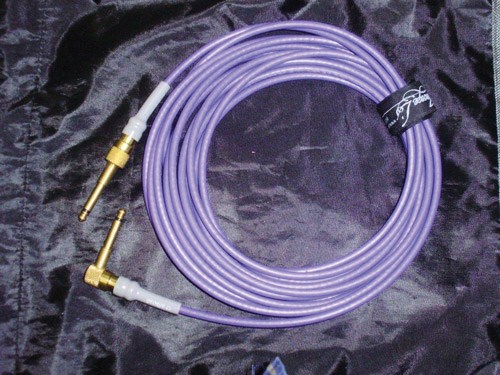
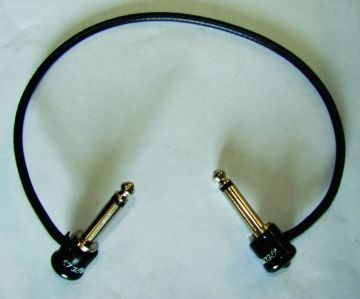
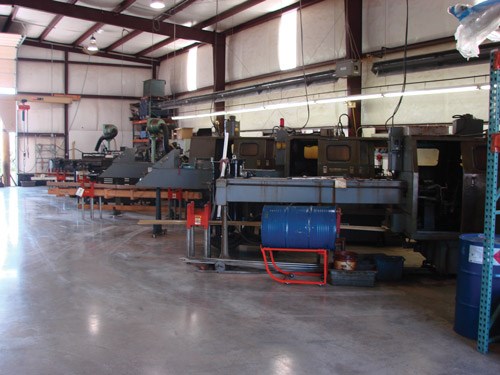
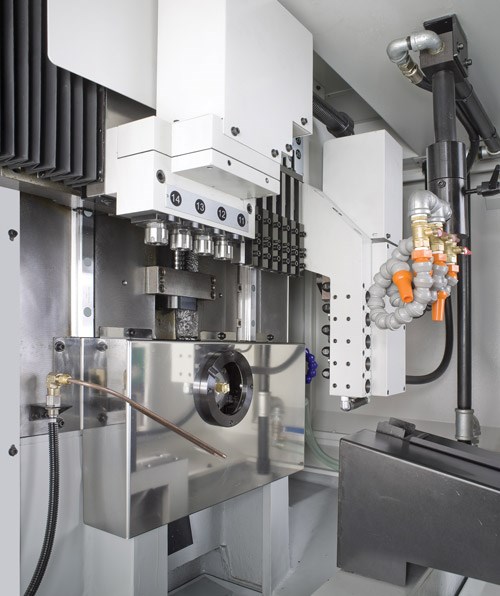
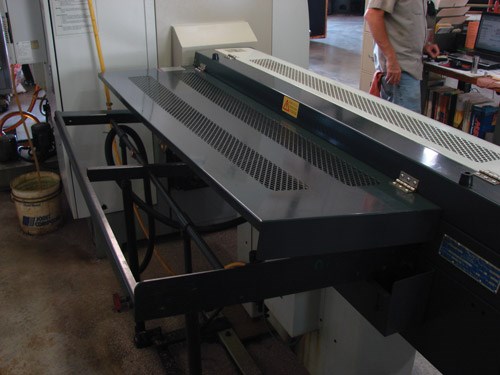







.jpg;maxWidth=300;quality=90)








